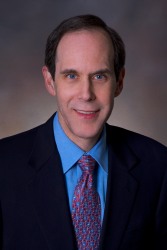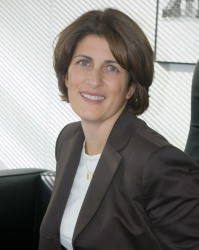Personal Profiles
Dr. Druker is director of the OHSU Knight Cancer Institute, JELD-WEN Chair of Leukemia Research at Oregon Health & Science University, and investigator of the Howard Hughes Medical Institute. Upon graduating from the University of California, San Diego School of Medicine in 1981, Dr. Druker completed his internship and residency in internal medicine at Barnes Hospital, Washington School of Medicine in St. Louis, Missouri. He then trained in oncology at Harvard's Dana-Farber Cancer Institute.
Dr. Druker then returned to the lab to begin his research career studying the regulation of the growth of cancer cells and the practical application to cancer therapies. He developed 4G10, an anti-phosphotyrosine antibody that was an essential reagent to scientists at Novartis in their kinase inhibitor drug discovery program. In collaboration with Novartis, his laboratory performed pre-clinical studies that were instrumental to the development of Gleevec (imatinib), a drug that targets the molecular defect in chronic myeloid leukemia (CML). After completing a series of preclinical studies, Dr. Druker spearheaded the highly successful clinical trials of imatinib for CML. Imatinib is currently FDA approved for CML, gastrointestinal stromal tumors (GIST) and five other cancers.
His role in the development of imatinib and its application in the clinic have resulted in numerous awards for Dr. Druker, including the AACR-Richard and Hinda Rosenthal Award, the Warren Alpert Prize from Harvard Medical School, the American Society of Hematology's Dameshek Prize, the Lance Armstrong Foundation's Pioneer of Survivorship Carpe Diem Award, the American Cancer Society's Medal of Honor, the Kettering Prize from General Motors Cancer Research Foundation, the David A. Karnofsky Award from the American Society of Clinical Oncology, the Robert-Koch Award, and the 2009 Lasker-DeBakey Award for Clinical Medical Research. He was elected to the Institute of Medicine of the National Academies in 2003, the American Association of Physicians in 2006, and the National Academy of Sciences in 2007.
Pat Garcia-Gonzalez
Executive Director, The Max Foundation
Pat Garcia-Gonzalez, Executive Director of The Max Foundation, has been dedicated to improving the lives of blood cancer survivors around the world for over twelve years. A native of Argentina, Pat has a Master degree from the University of Washington and technical degree in nursing.
Pat is co-founder of The Max Foundation, an international NGO based in Edmonds, Washington, started in 1997 to connect families facing leukemia with resources for treatment access.
Under Pat's direction since 2005, The Max Foundation provides services to over 15,000 CML patients in more than 90 countries annually and has successfully started and supported local patient organizations in 12 countries.
In 2008, Pat was awarded the distinguished honor of the Golden Tennis Shoe Award from United States Senator, Patty Murray for her service and dedication to her community. She is a member of the Global Health Council and of the CML Advocates Network.
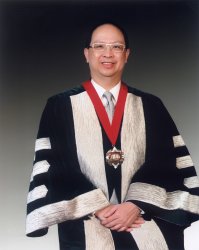 Prof. Raymond Hin-Suen LIANG
Prof. Raymond Hin-Suen LIANG
Department of Medicine
Queen Mary Hospital
Hong Kong
Present appointments:
21.1.05 - present
S.H. Ho Professor in Haematology and Oncology,
Department of Medicine,
1.7.99 – present
Chair Professor in Haematology and Oncology, Department of Medicine,
1.7.95 - present
Chief, Division of Haematology/Oncology and
Bone Marrow Transplant Unit
1.12.92 - present
Honorary Consultant, Hospital Authority,
1.9.04 – present
Deputy Head, Department of Medicine,
1.8.08 – present
Senior Advisor to the Dean, Li Ka Shing Faculty of Medicine, University of
19.12.08 – present
President, Hong Kong Academy of Medicine.
Previous appointments:
1.7.79 ‑ 31.12.79
House Physician, University Department of Medicine,
1.1.80 ‑ 30.6.80
House Surgeon, Surgical Unit C,
1.7.80 ‑ 31.10.85
Medical Officer, University Department of Medicine,
Tung Wah Hospital, Hong Kong.
1.8.83 ‑ 31.3.84
Honorary Registrar, Department of Radiotherapy and Oncology,
1.4.84 ‑ 30.9.85
Lecturer, Departments of Medical Oncology and Clinical Pharmacology, Guy's
1.11.85 ‑ 30.6.91
Lecturer in Medicine (Haematology/Oncology), Department of Medicine,
1.7.91 ‑ 30.6.93
Senior Lecturer in Medicine (Haematology/Oncology)
Department of Medicine,
1.7.93 – 30.6.99
Professor (Reader)
Department of Medicine,
1.2.95 – 31.3.2002
Director, Cancer Research Centre,
Faculty of Medicine
1.3.92 - 28.2.95
Associate Dean
1.4.97 – 12.3.07
Faculty of Medicine
1.11.06 – 12.3.07
Director, Centre of Cancer Research,
12.3.07 – 31.7.08
Acting Dean/Dean of Medicine
Li Ka Shing Faculty of Medicine
Qualifications:
1979
Bachelor of Medicine and Bachelor of Surgery,
1983
Member of the Royal Colleges of Physicians,
1986
Fellow of the
Specialty Accreditation :
Advanced Internal Medicine
Haematology and Haematological Oncology
Medical Oncology
1990
Doctor of Medicine,
Title of thesis: "Malignant lymphomas in Hong Kong Chinese"
(Sir Patrick Manson Gold Medal)
1992
Fellow of the
1992
Fellow of the
1993
Foundation Fellow of the
1995
Fellow of the
1995
Fellow of the Royal Australasian
2000
Registered specialist : Haematology, General Medical Council,
Special Appointments (International)
4.90 – 11.98
Member of Editorial Board, the International Journal
“Hematological Oncology”
11.98 - 2005
Associate Editor, Hematological Oncology
11.91
Hon. Treasurer, Organizing Committee, 7th Asian‑Pacific Congress of the International Society of Haematology
7.92
Assessor for the South Australian Research Grants,
Anti-Cancer Foundation of
1995 - 2000
Member of the International Affair Committee,
1999 - 2000
Chairman, International Affair Committee,
American Society of Clinical Oncology
1995 - present
Member of the Advisory Committee of the International
Bone Marrow Transplantation Registry,
1995 - 1997
Member, Advisory Board Panel, 3rd Pan-Pacific Lymphoma
1995 - 1997
Chairman, Scientific Committee of the 14th Asian Pacific Cancer Conference.
1997 - 1998
Advisor, Asian Clinical Trials Conference,
Member, Scientific Committee, 1997 - 98.
1997 - 1999
Member of Editorial Board, the International Journal
“Cancer Therapeutics”.
1997 - present
Examiner, MRCP (UK) Examination,
1998
Member, International Organising Committee, The 6th Congress of Asian-Pacific Bone Marrow Transplantation Group,
1998 - 1999
Member, Advisory Board Panel, 4th Pan-Pacific Lymphoma
1999 - 2003
Editor-in Chief, Journal of Clinical Oncology (Chinese Edition) and member of Editorial Board, Journal of Clinical Oncology.
1999
Member, Scientific Committee, Pan-Arab Conference on Lymphoma
1999 – present
Member of Editorial Board, the International Journal “Clinical Lymphoma”.
1999
External Reviewer, National Medical Research
- Chairman, International Symposium.
36th Annual Meeting of American Society of Clinical Oncology.
- Member, International Advisory Board,
“Davidson’s Principles and Practice of Medicine” – an international textbook on medicine.
2000
Member, International Strategic Planning Task Force, American Society of Clinical Oncology.
2001
International Advisor, 16th Asian Pacific Cancer Conference,
2002
Member, International Advisory Committee, 26th International Congress of Internal Medicine,
2003 - present
Member, Editorial board, “Medical Progress”, the Journal.
2004
Member, International Scientific Committee
2nd Annual Meeting of Asian Hematology Association
2004
Guest Editor, Asian Pacific Cancer Review.
2004
Member of the Expert Panel,
2005 – present
Member of the International Haematology Advisory Board, Janssen Pharmaceutical.
2005
Member, International Scientific Committee. 10th Congress of the Asian Pacific Bone Marrow Transplantation Group. Hang Zhou, October, 2005.
2006
Member, Editorial Board of the International journal : “Targeted Oncology”
2006
Member, Executive Committee, International T-cell lymphoma
2007
Member, clinical advisory committee for Lymphoid Neoplasms, World health Organisation classification of neoplasms of the Hematologic and Lymphoid neoplasms.
2007
Chairman, Universitat 21 Medical Conference,
2007
Associate Editor, Journal of Hematology and Oncology
2008
Co-Chairman, Chinese Society of Bone Marrow Transplantation.
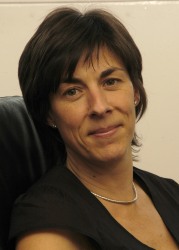
Professor Tessa Holyoake
- 1980-85 Medicine Glasgow University
- 1985-86 House jobs Stobhill and Victoria, Glasgow
- 1986-89 General medical training Inverclyde Hospital, Greenock
- 1989-92 Haematology, Western Infirmary, Glasgow
- 1992-96 PhD, Beatson Institute for Cancer Research, Glasgow
- Specialist Haematology Training, Glasgow Royal Infirmary
- 1996-98 LRF Senior Lecturer, Terry Fox Labs, Vancouver
- 1999-2001 Senior Lecturer, Academic Transfusion Medicine Unit, Glasgow Royal Infirmary
- 2001-2004 Reader, Section of Experimental Haematology, Glasgow Royal
- 2004-present Professor, Section of Experimental Haematology, Glasgow Royal
- 2008 Relocation of Section of Experimental Haematology to the Paul O'Gorman Leukaemia Research Centre and West of Scotland Cancer Centre, Gartnavel Hospital
Research Interests
My research focuses on the cancer stem cell. Cancer stem cells sustain cancers and leukaemias, are inherently resistant to many cancer therapies, including novel targeted agents and ultimately cause relapse in patients following therapy. We are most interested in the blood cancers, in particular chronic myeloid leukaemia. We have developed laboratory methods to purify the cells of interest from leukaemia patients and from normal donors, allowing side by side comparisons of leukaemic versus normal stem cells. These comparisons include global analyses of gene expression and protein expression. Any differences can then be fully investigated and exploited through drug discovery. Recently we have begun to explore high throughput drug screening against the purified cancer stem cells hoping to find drugs that rapidly kill the cancer stem cells but leave normal stem cells intact.
On the clinical side I run clinical trials of novel agents for patients with CML Scotland wide.
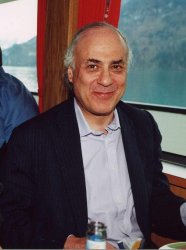 Professor John M Goldman DM, FRCP,FRCPath, FMedSci
Professor John M Goldman DM, FRCP,FRCPath, FMedSci
Senior Research Investigator
Division of Investigative Science
Imperial College London, UK
Professor John M. Goldman has a long standing interest in the biology and therapy of chronic myeloid leukemia (CML). He was until 2004 Chairman of the Department of Haematology at Imperial College London, Director of the Leukaemia Research Fund Centre for Adult Leukaemia and Clinical Director of the Haematology Department at the Hammersmith Hospitals NHS Trust. Thereafter he took up a 2-year appointment as Fogarty Scholar at the National Institutes of Health in Bethesda USA. He is now active as Emeritus Professor of Haematology at Imperial College London and Medical Director of the Anthony Nolan Trust. He is editor of Bone Marrow Transplantation, a former editor of The Haematology Journal, and an associate editor of the European Journal of Haematology. He is also an editorial board member of numerous other journals and, during the course of his career, has published over 800 papers in peer-reviewed journals. As well as being the founding president of the British Society for Blood and Marrow Transplantation, he is a former president of the International Society for Experimental Hematology, the European Group for Blood and Marrow Transplantation and the European Hematology Association.
Professor Goldman was the first to autograft patients with CML using peripheral blood stem cells and started allogeneic stem cell transplant for CML in 1980. He pioneered the use of unrelated donors for transplanting CML patients and developed PCR technology for monitoring residual disease. He confirmed the preclinical efficacy of the original tyrosine kinase inhibitor (STI571, now imatinib) in 1997 and first used it in the clinic in 1999. Thereafter he has been involved in development of second generation TKIs, notably dasatinib and nilotinib.
Francisco Cervantes, MD, PhD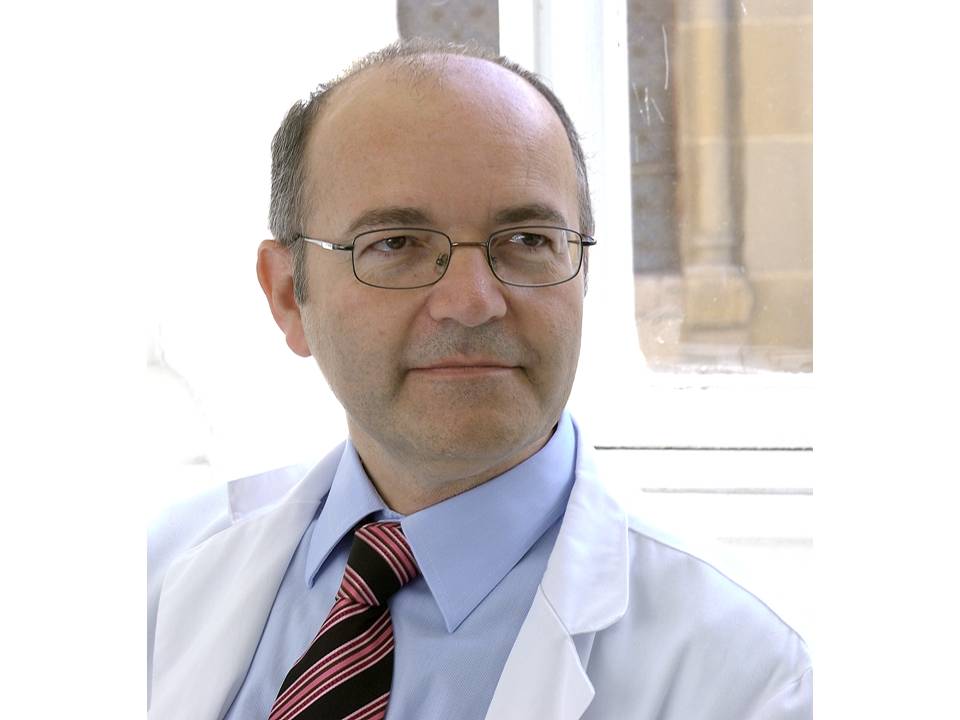
Hematology Department
Hospital Clínic
University of Barcelona
Barcelona, Spain
Dr Francisco Cervantes is senior consultant at the Hematology Department of the Hospital Clínic of Barcelona and Professor at the University of Barcelona. His scientific interest has been focused on the study of chronic myeloid leukemia (CML) and the Ph-negative chronic myeloproliferative neoplasms (MPNs), mainly their natural history, prognosis, biology and treatment. As a result of the activity in this field, he has published over 300 articles in peer-review journals. He was co-author of the publications of the IRIS study that allowed the approval of imatinib as frontline treatment of CML, participated in the introduction of the second-generation tyrosine kinase inhibitors, and is a member of the expert panels of the European LeukemiaNet for CML and MPN treatment. In the MPN field, he was the leading author of the prognostic classification of primary myelofibrosis or IPSS. Dr Cervantes is a member of the American Society of Hematology, the European Hematology Association, the International Working Group for MPN Research and Treatment, the European LeukemiaNet, and the PETHEMA Spanish Collaborative Group.
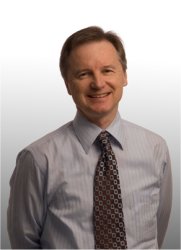 Professor Timothy P. Hughes, MD, FRACP, FRCPA
Professor Timothy P. Hughes, MD, FRACP, FRCPA
Timothy P. Hughes, MD, FRACP, FRCPA, is Head of the Department of Haematology at SA Pathology, RAH site, and Consultant Haematologist at the Royal Adelaide Hospital. He is also Clinical Professor of Medicine at the University of Adelaide and holds a Practitioner Fellowship from the National Health and Medical Research Council. His clinical interests include chronic leukaemias and myeloproliferative disorders. His current research interests focus are in molecular monitoring for leukaemias, clinical resistance to targeted therapies in leukaemia and the development of assays to predict response and resistance to targeted agents. He has published over 100 articles in peer-reviewed journals. He is a member of the Haematology Society of Australia and New Zealand, for which he served as President from 2001 to 2003, and the Australasian Leukaemia and Lymphoma Group, for which he served as a Director from 1999-2004 and as Vice-Chairman in 2003-4. In 2006 Professor Hughes was awarded the RACP Eric Susman Prize for the most outstanding contribution to the knowledge of any branch of internal medicine by a member of the College of Physicians.

